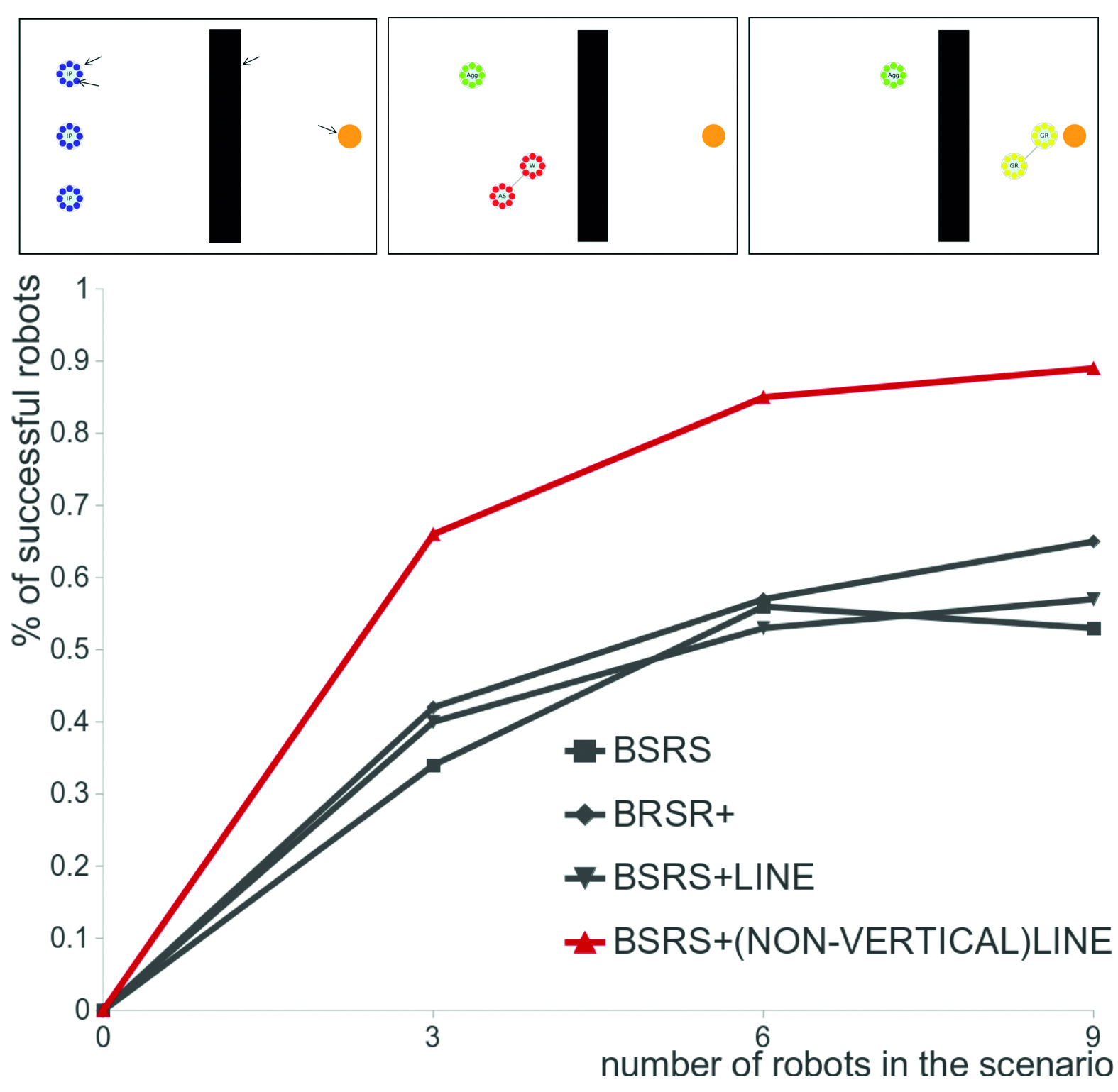| MESSI - Design and Performance Evaluation of Self-Assembly Strategies |
 |
 |
 |
|
The methodology instantiates the white-box approach for adaptation, and has been developed to specify and analyze adaptive systems in Rewriting Logic. Validation has been performed for self-assembly strategies, a mechanism allowing groups of simple entities to act as a single complex entity exhibiting emergent behaviors. Notable examples include bacteria or insect swarms, modular and self-assembling robots, and software components with dynamic coupling mechanisms. The distinguishing features of this approach are:
The approach has been implemented in the Maude-based tool MESSI, which allows us to easily model robotic self-assembly strategies exploiting a predefined library of basic robotic controllers, debug and validate them via animated simulations, and estimate their quantitative properties via the statistical model checker MultiVeStA. The picture concerns a scenario where robots self-assemble to cross a hole; it shows three states of a simulation (top), and the expected number of robots successfully crossing the hole with a varying of the number of robots and of the assembly strategy.
Further Information: |
| Last Updated on Monday, 09 March 2015 14:37 |



